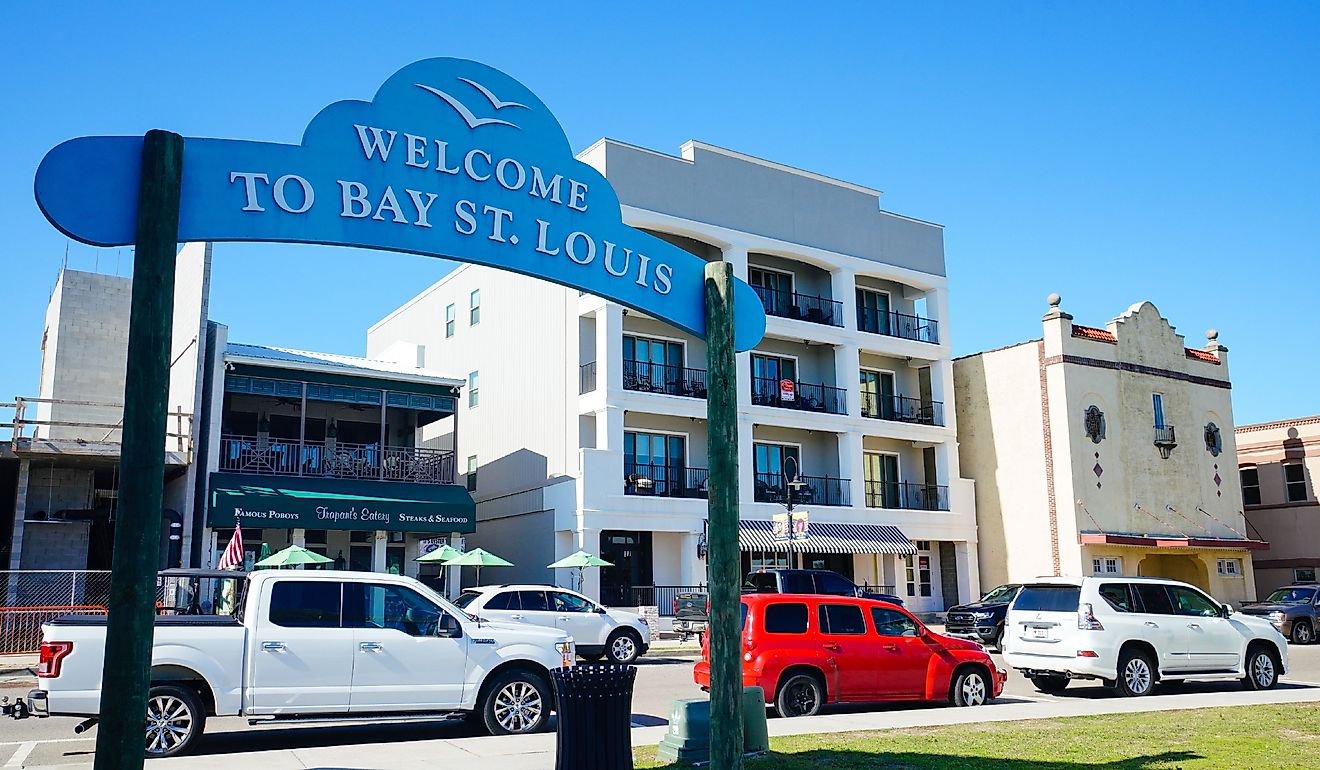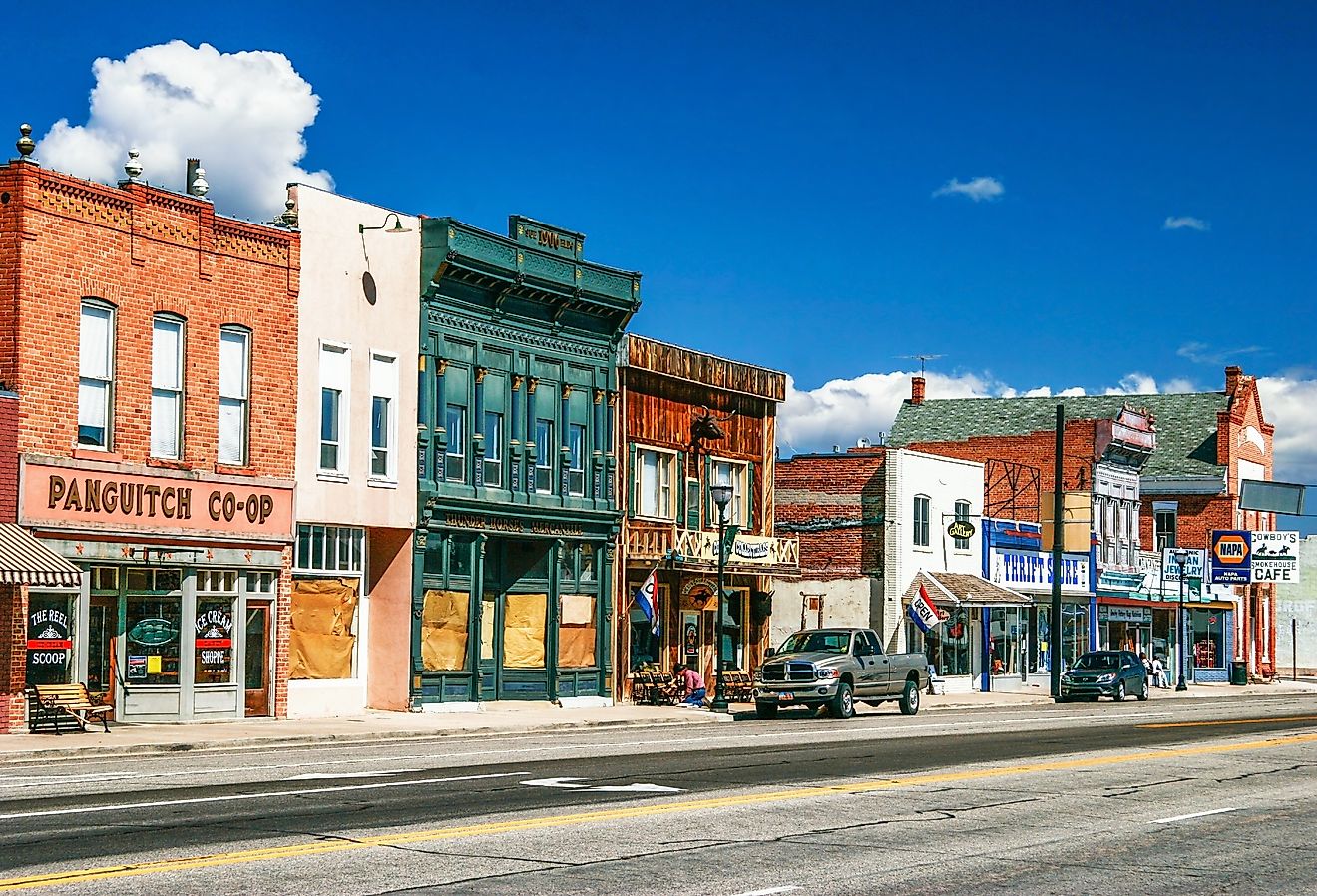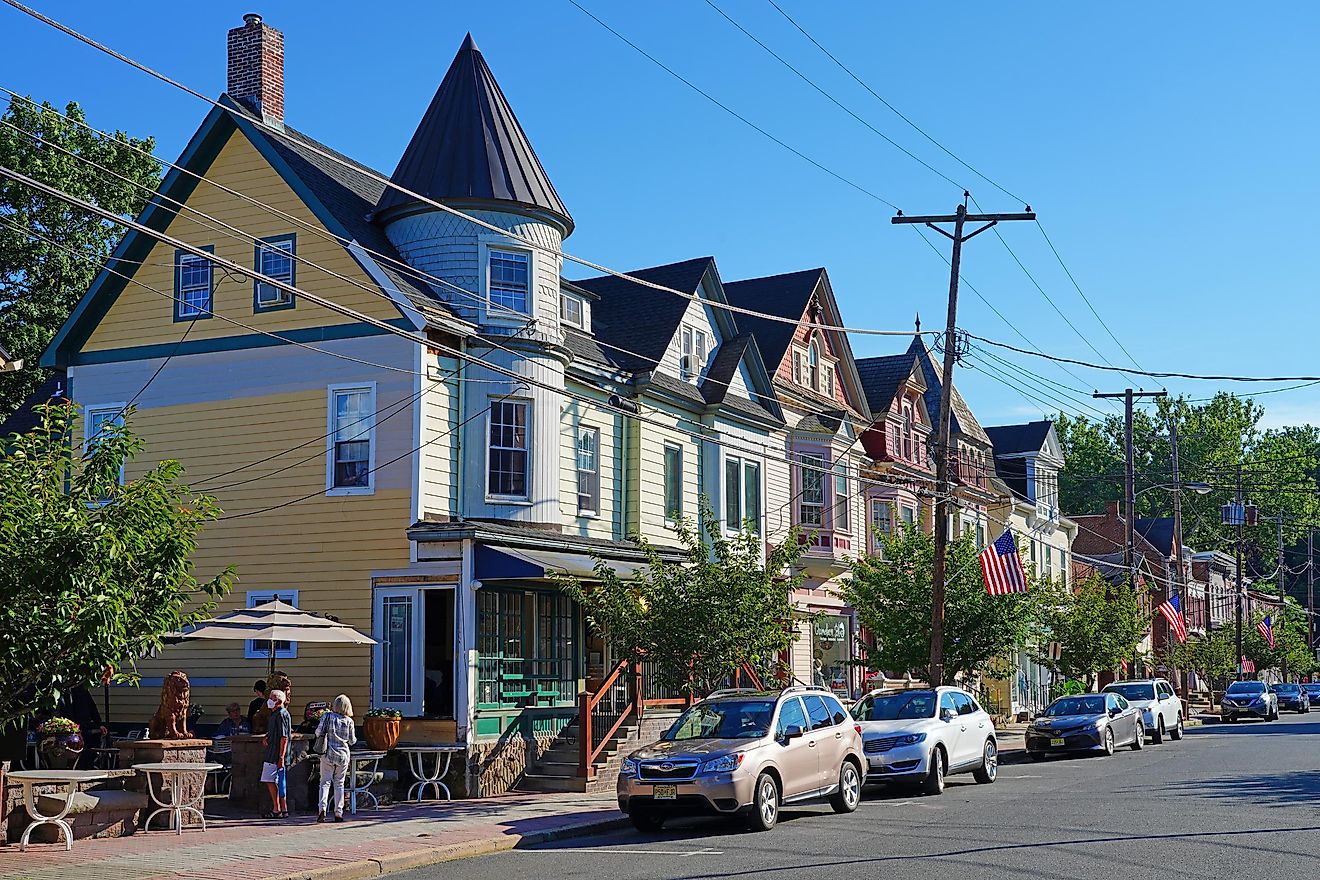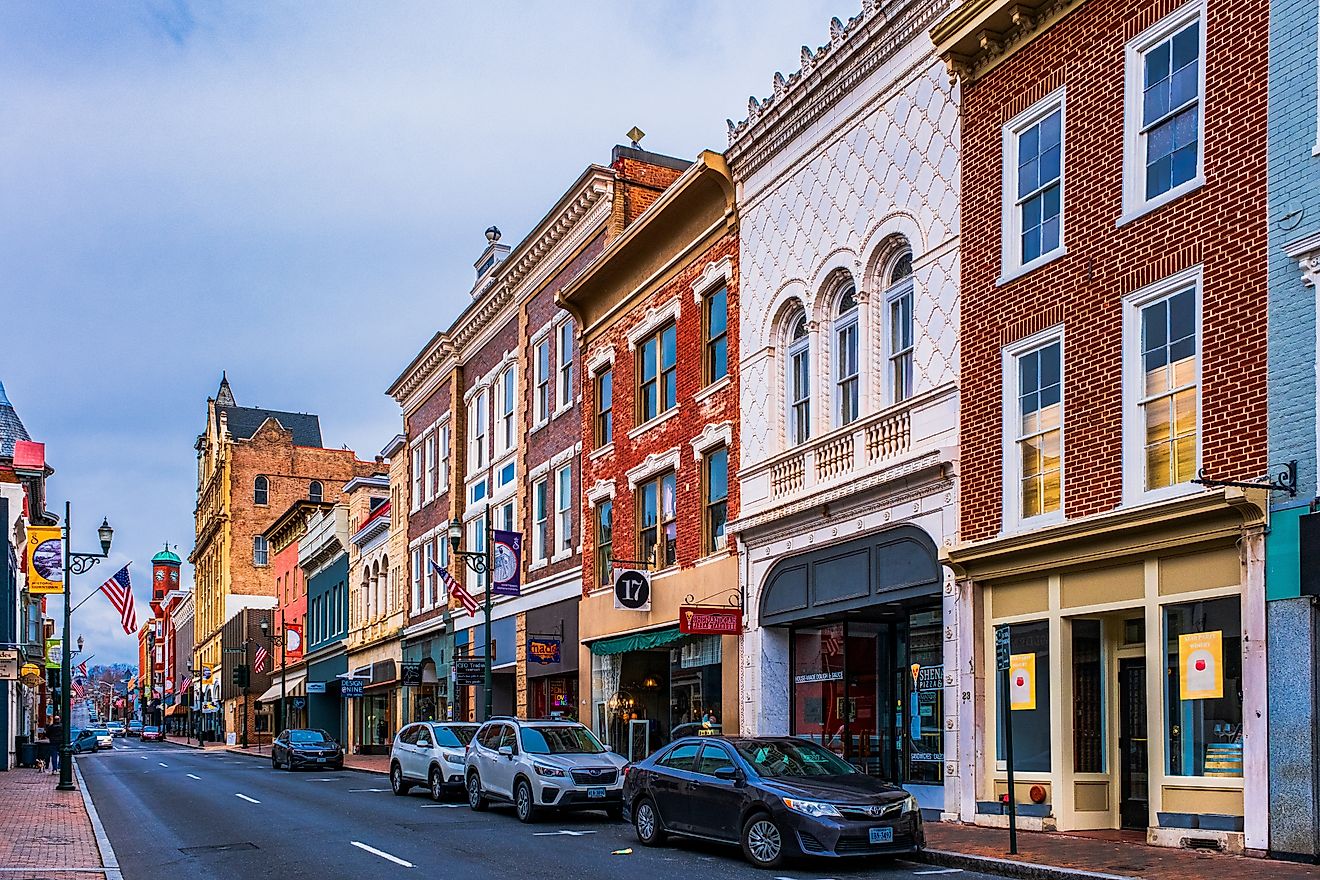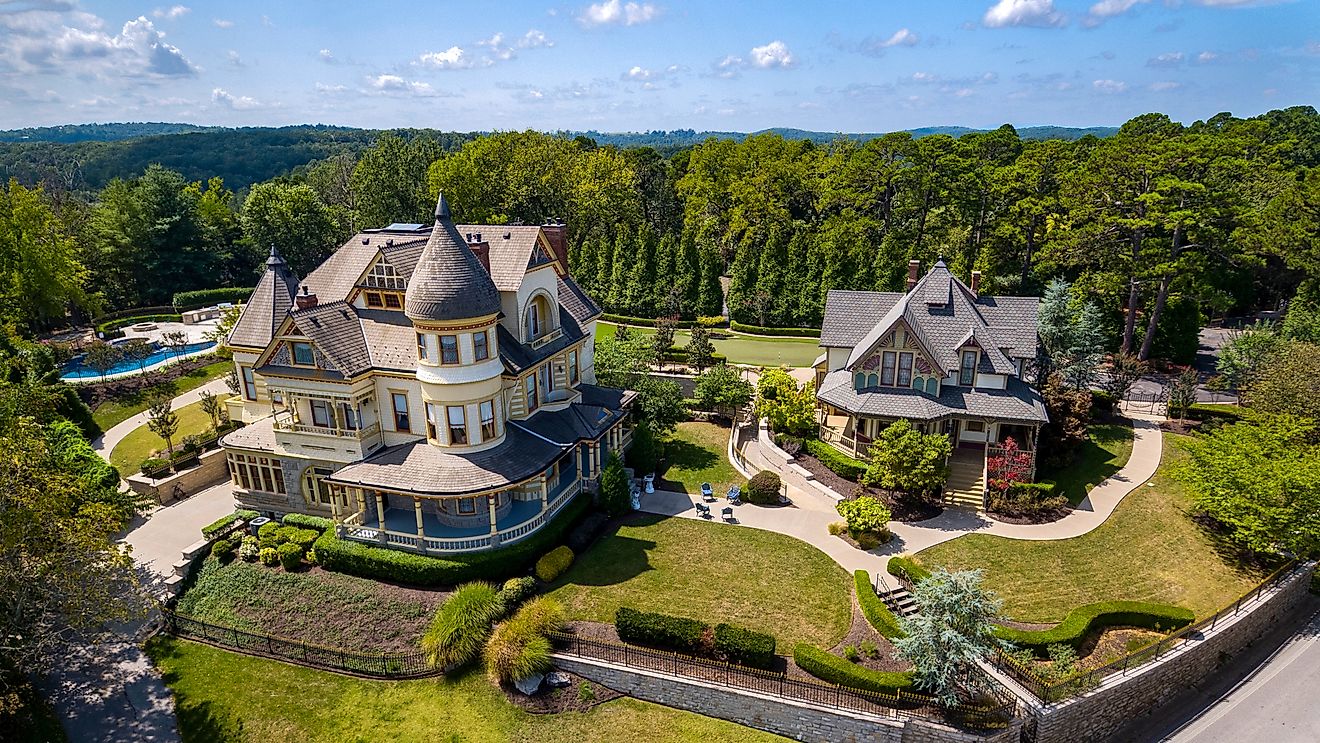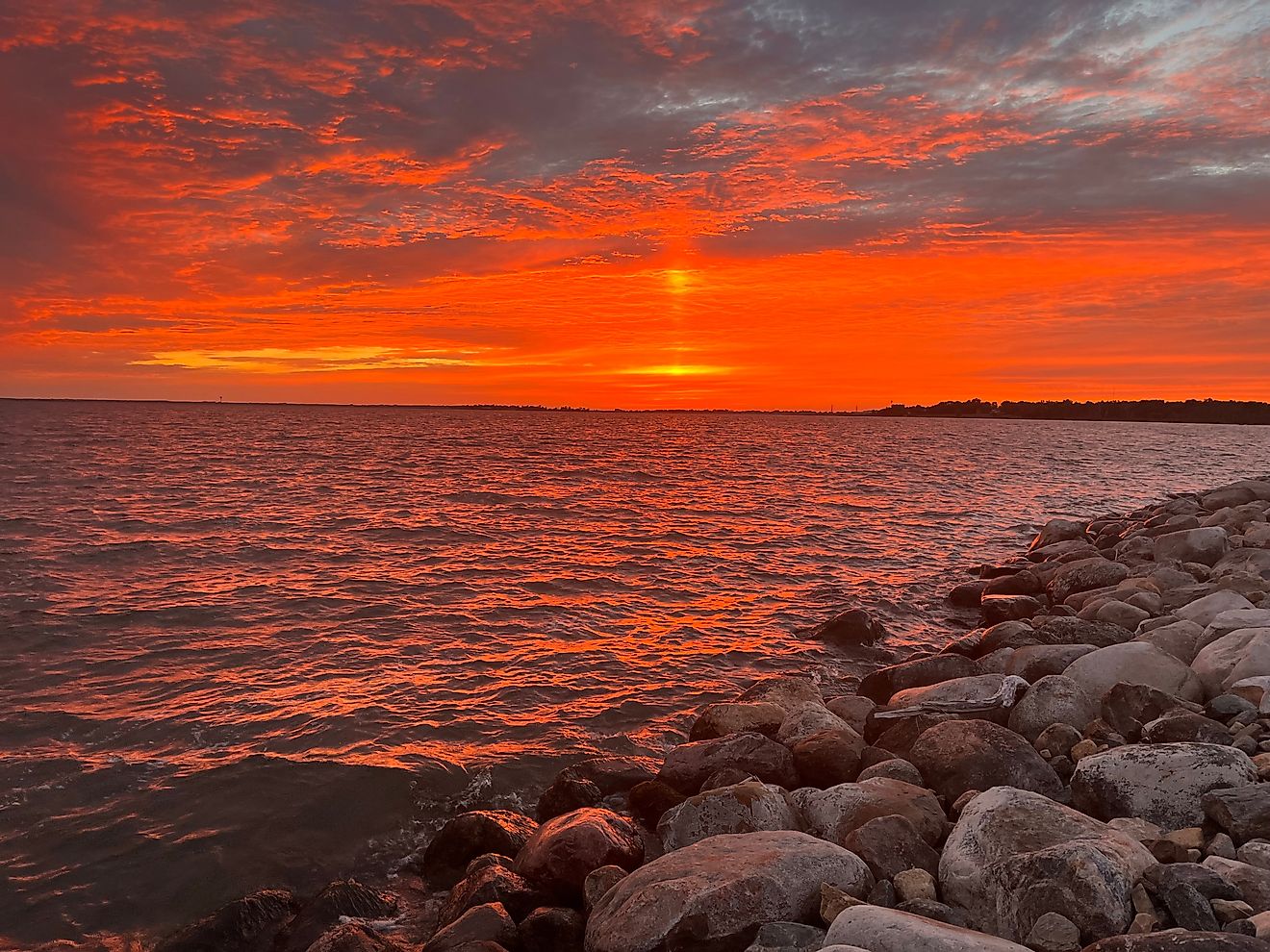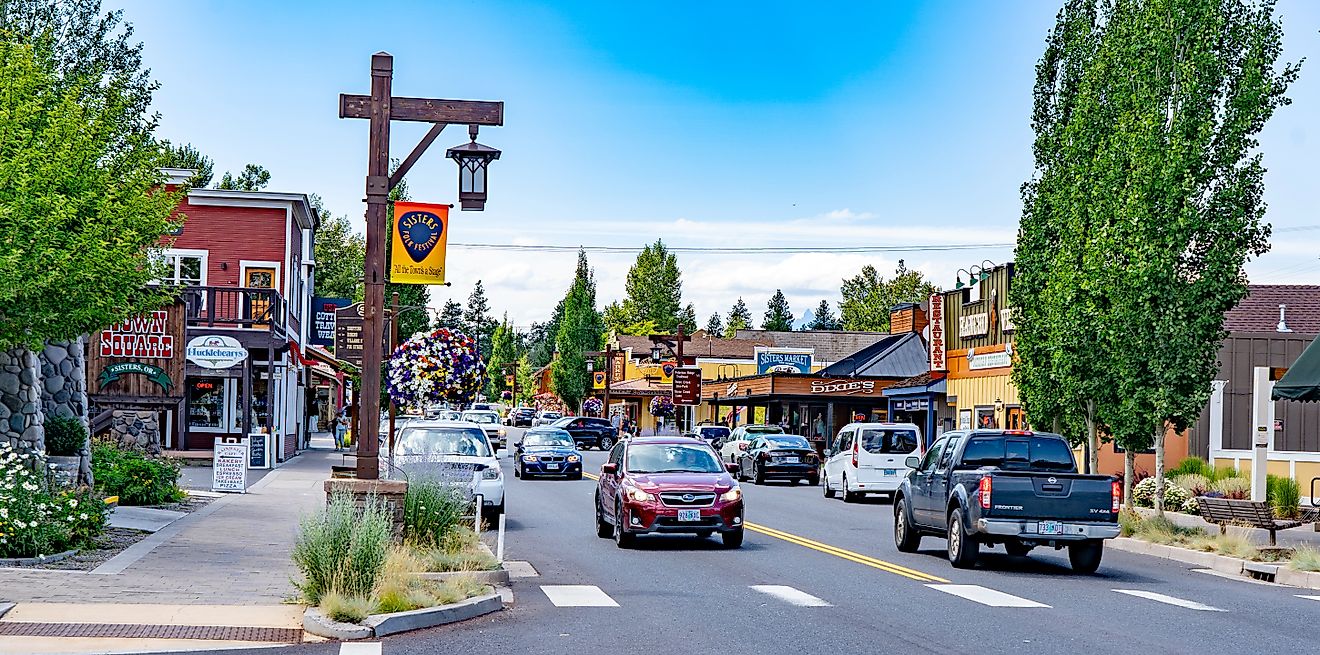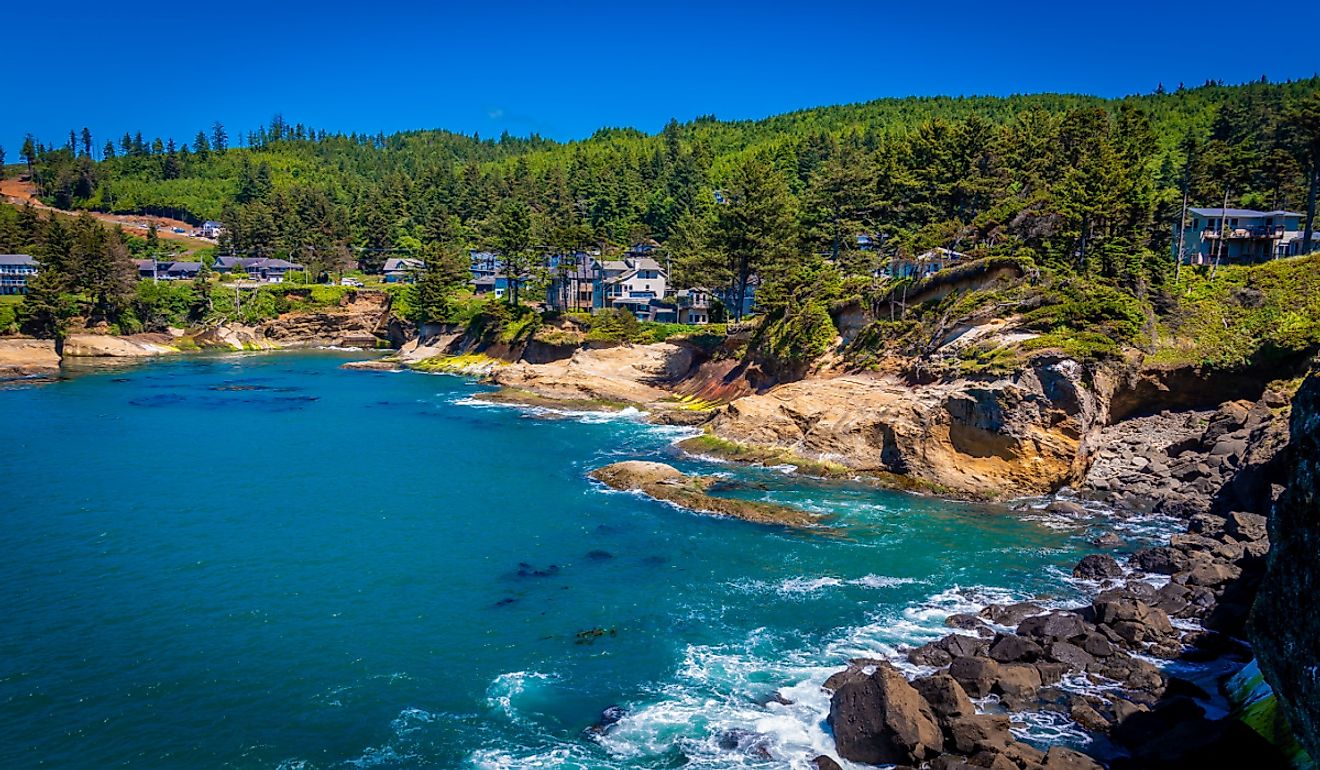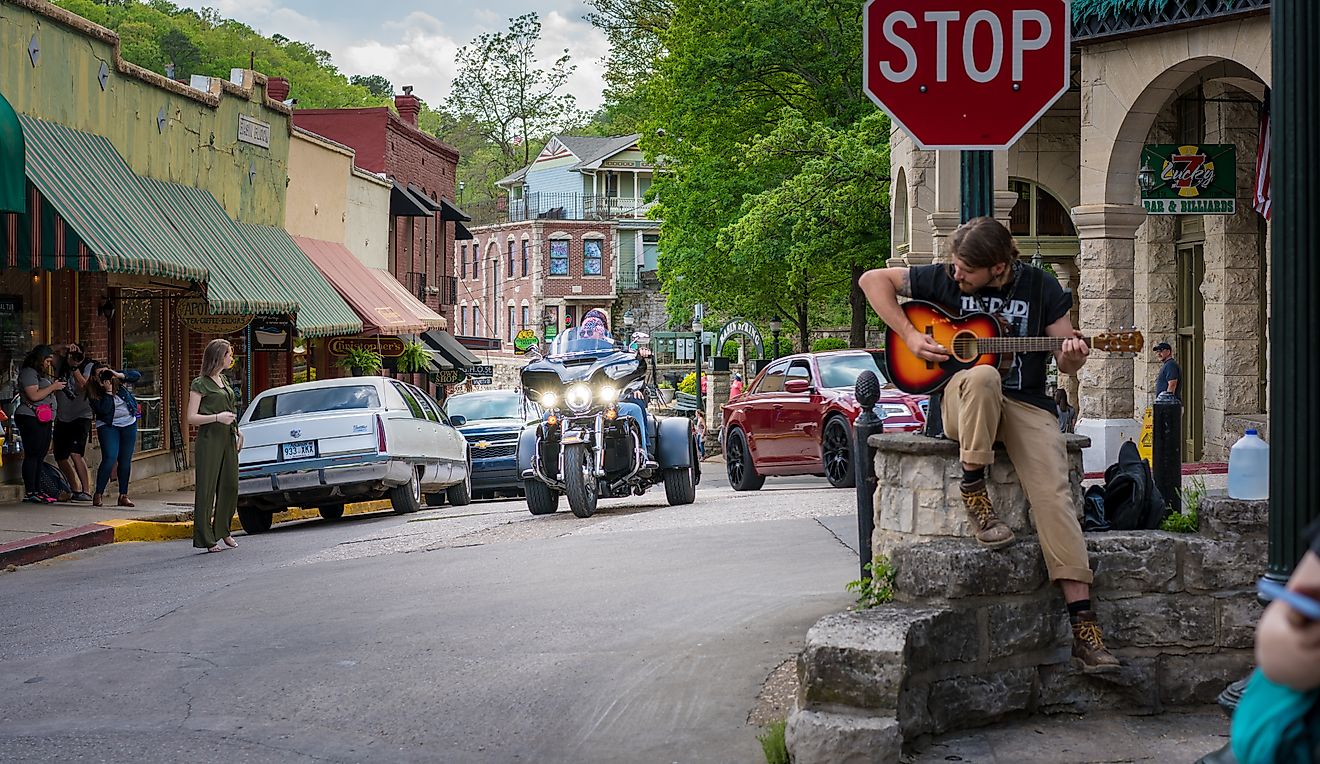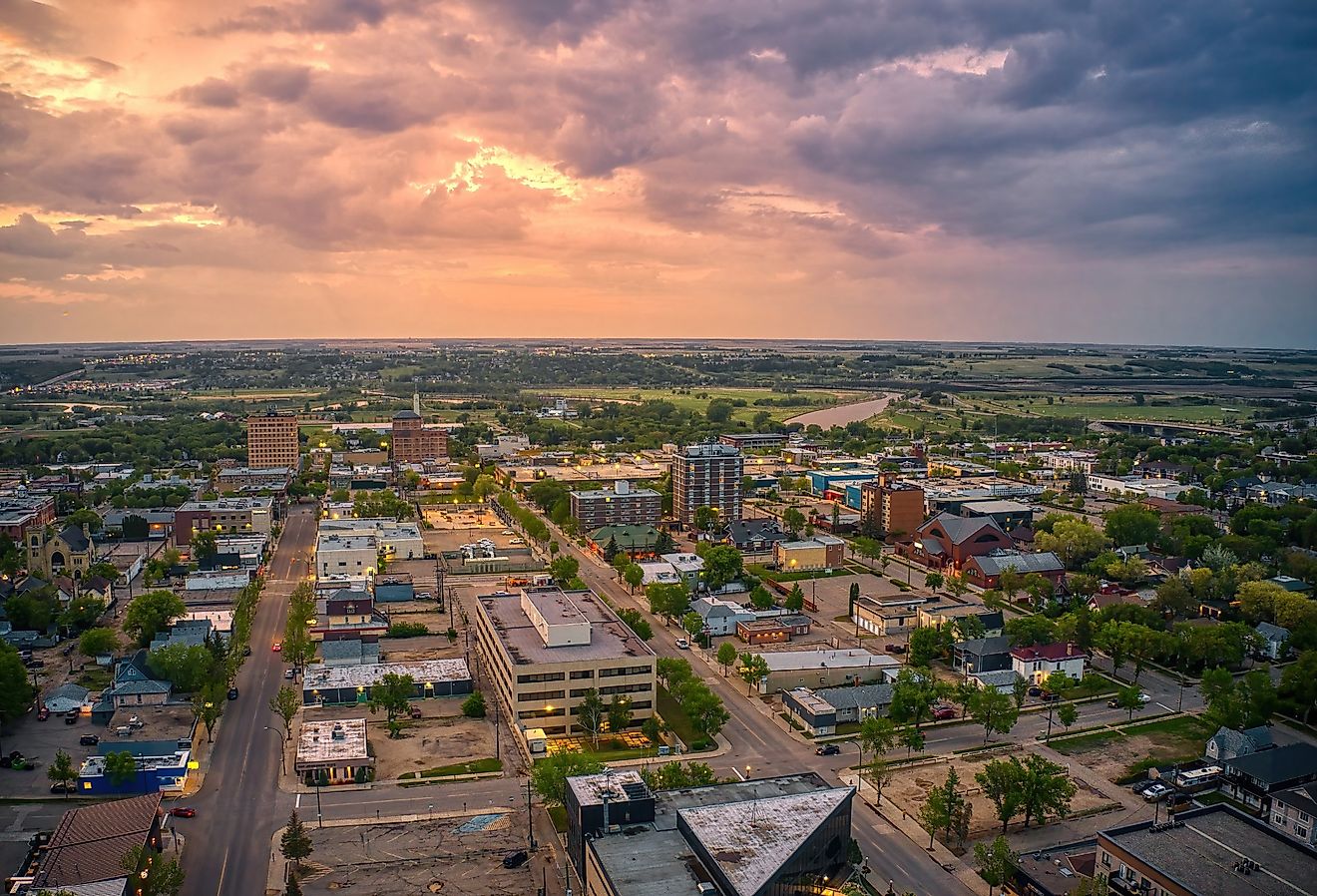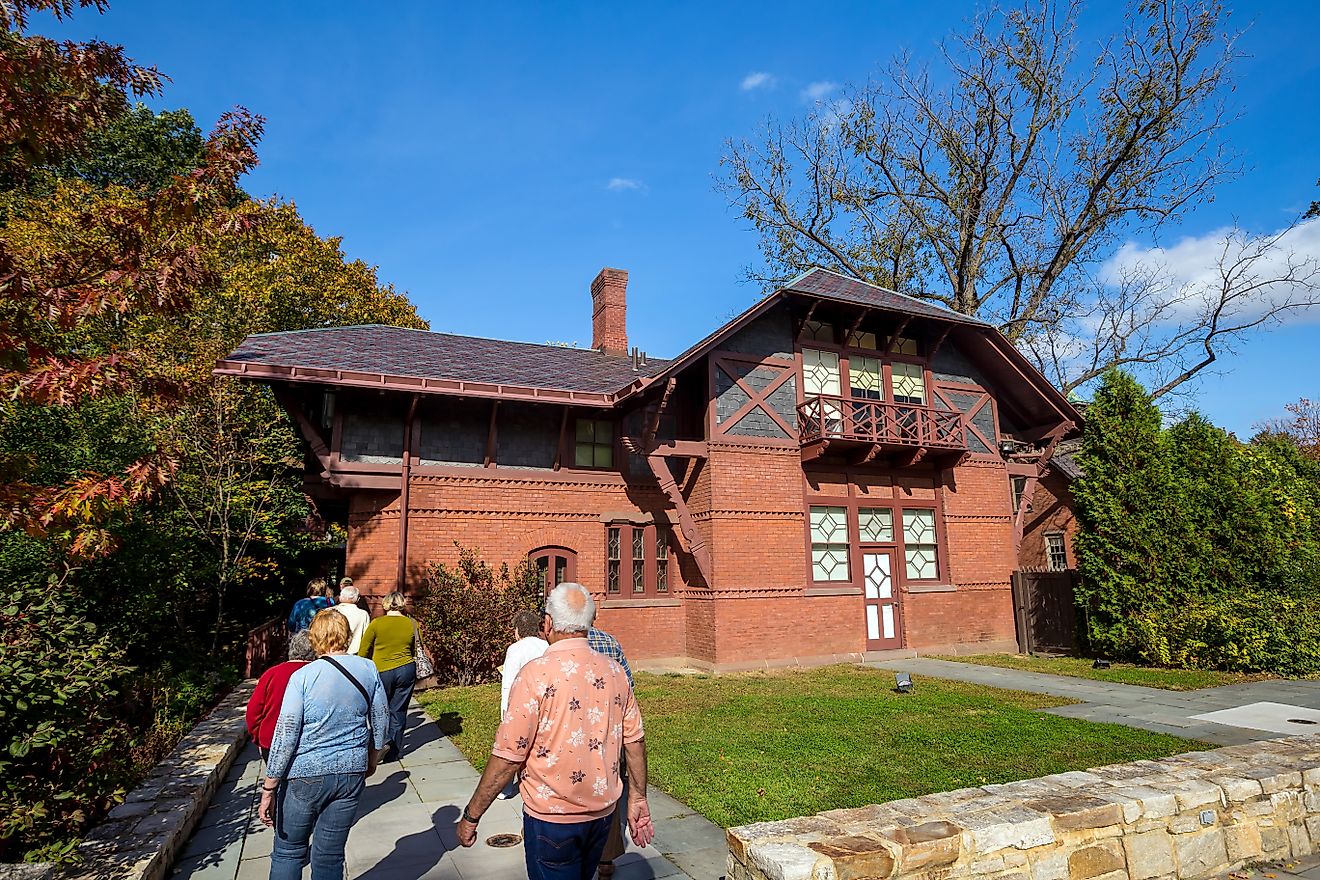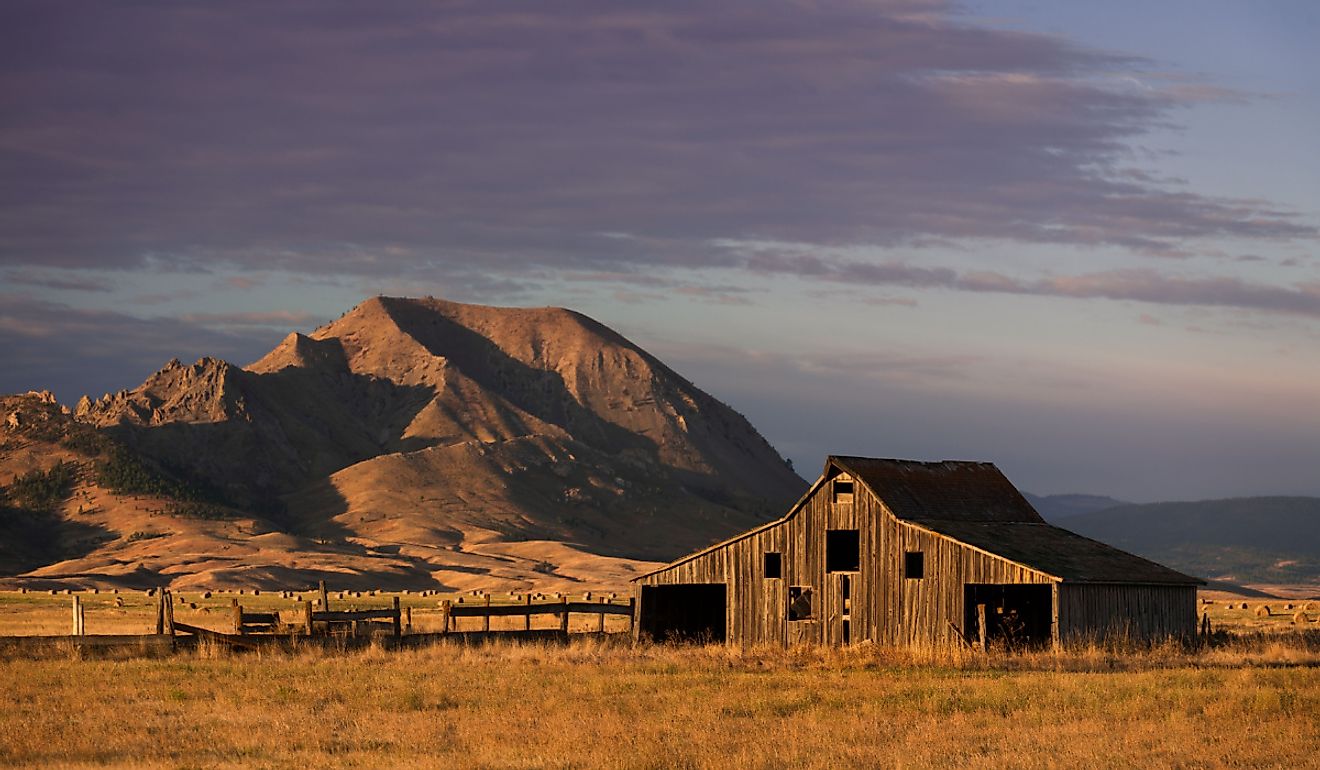
11 Adorable Small Towns In South Dakota
South Dakota, the 17th largest and 5th least populous US state, is well-known for its diverse landscape featuring rugged Badlands, tall mountain ranges, rolling prairies, meandering rivers, and lush green forests. Besides being home to some famous historical monuments, South Dakota is dotted with charming small towns that provide a peek into the state’s rich history, Native American culture, and annual traditional festivals. From the Wild West of Deadwood to the warm mineral springs of Hot Springs, these small towns offer a memorable experience for everyone who visits them.
Deadwood
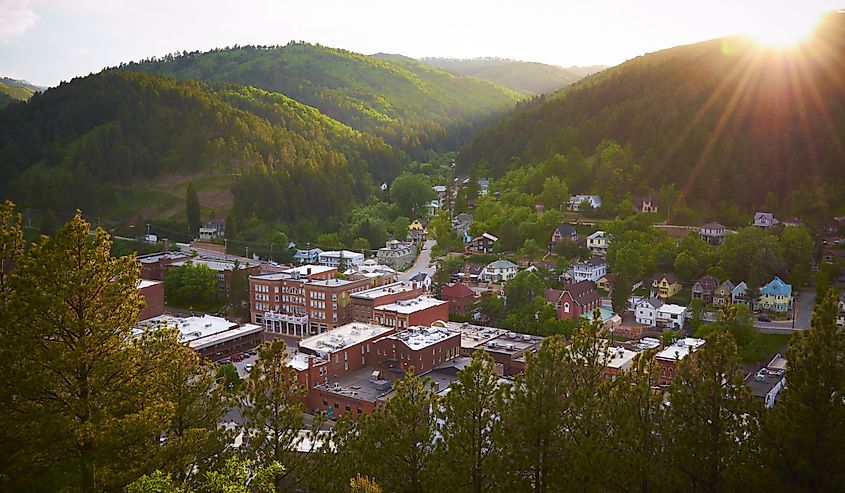
Named by early settlers after the dead trees found in the canyon formed by the Whitewood Creek in the northern Black Hills, this attractive small town is located in the state’s western portion immediately northeast of Lead. Home to just 1,156 inhabitants, the entire town was labeled as a “National Historic Landmark District” in 1961 for its well-maintained frontier architecture of the late 19th century. Visitors can walk the streets where Old West legends like Wild Bill Hickok, Calamity Jane, and Seth Bullock once roamed and explore the town’s noteworthy sites, such as the Adams House Museum, Days of ’76 Museum, Mount Moriah Cemetery, and Homestake Adams Research and Cultural Center. At present, the town’s economy is primarily driven by tourism based on countless gaming halls. Being encircled by the Black Hills National Forest, Deadwood offers ample outdoor recreational opportunities like mountain biking, hiking, horseback riding, skiing, and snowmobiling.
Dell Rapids
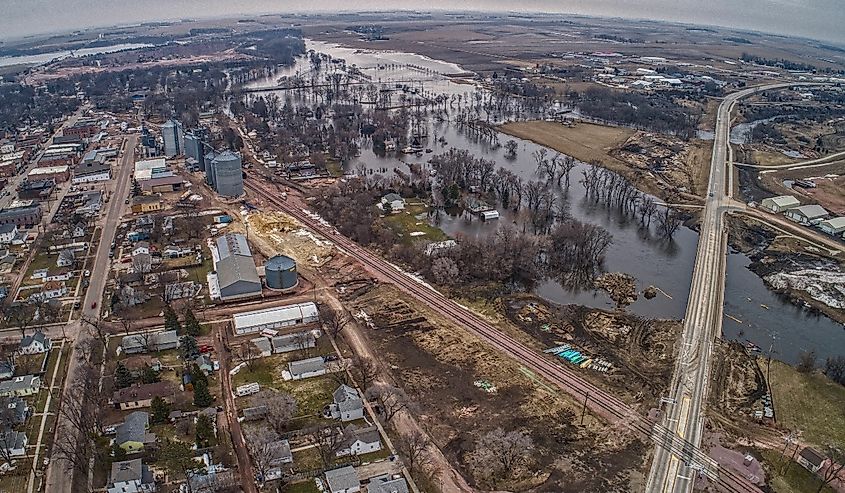
Nicknamed “The Little City with the Big Attractions,” Dell Rapids, home to just 3,996 inhabitants, is in the state’s southeastern portion in Minnehaha County, just 20 minutes north of Sioux Falls. At Dell Rapids, visitors can witness the town’s stunning downtown that was rebuilt using Sioux Quartzite after a massive fire destroyed a major part of the town in 1888. Several historic buildings like the Grand Opera House, the Carnegie Public Library, etc., line Main Street, the town’s principal business center. Residents and tourists enjoy various outdoor activities at the city parks and the Sioux River Red Rock Trail. The town also hosts many fun celebrations like the Quarry Days, Easter Egg Hunt, Cootie Days, and Christmas at the Dells every year.
Keystone
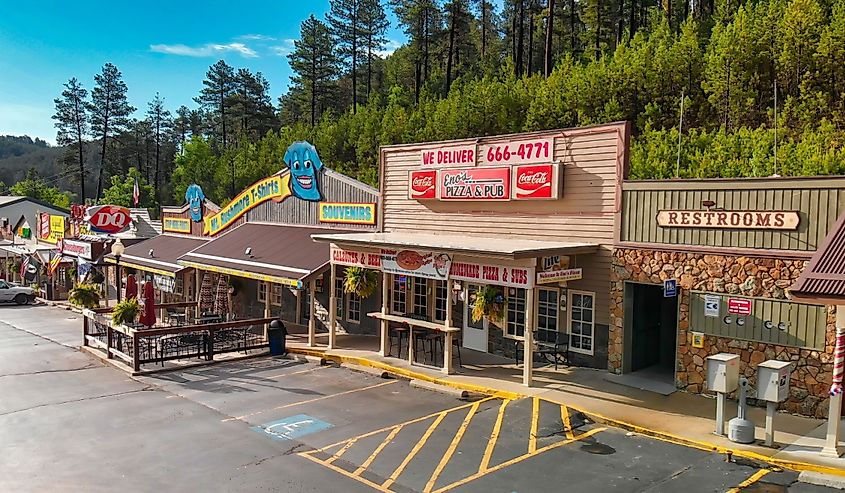
Named after a local mine, this quaint resort town is located in the Black Hills region of the state’s Pennington County. Besides being the gateway to Mount Rushmore National Memorial, Keystone houses many family-friendly recreational destinations, including the Black Hills Central Railroad, the National Presidential Wax Museum, Keystone Historical Museum, Big Thunder Gold Mine, and Rush Mountain Adventure Park. Visitors can also explore the surrounding Black Hills National Forest, as well as many souvenir shops, retail stores, old-time photo shops, small pubs, and restaurants.
Pierre
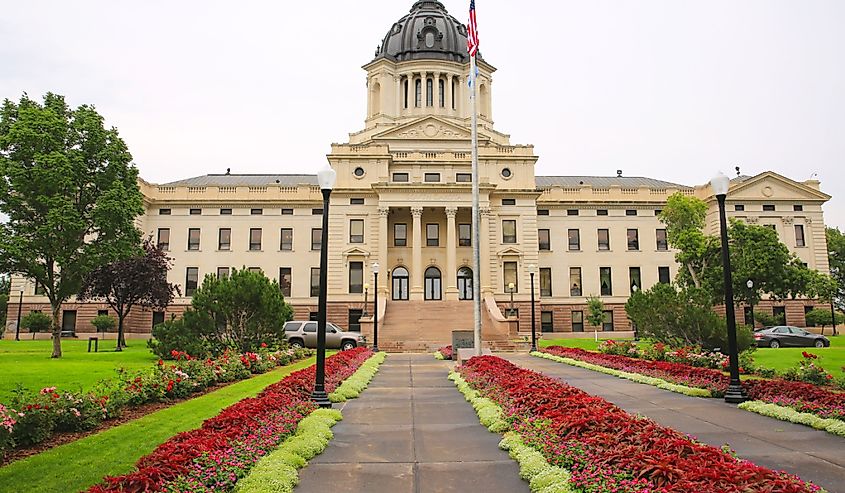
The state capital and county seat of Hughes County, Pierre, is placed atop the rough river bluffs along the eastern shores of the Missouri River at the geographic center of the state. Pierre, along with its sister city Fort Pierre which is located just across the Missouri River, offers visitors with various museums, cozy eateries, outdoor recreation, and plenty of scenic views. Some of the interesting tourist attractions include the State Capitol building, the Museum of the South Dakota State Historical Society, the South Dakota National Guard Museum, the South Dakota Cultural Heritage Center, the South Dakota Discovery Center and Aquarium, the Farm Island State Recreation Area, and Fort Pierre National Grassland. Located only a few miles north of Pierre is Lake Oahe, the country’s 4th-largest reservoir created by the construction of the Oahe Dam, which offers ample recreational opportunities like fishing, boating, camping, hiking, and picnicking.
Vermillion
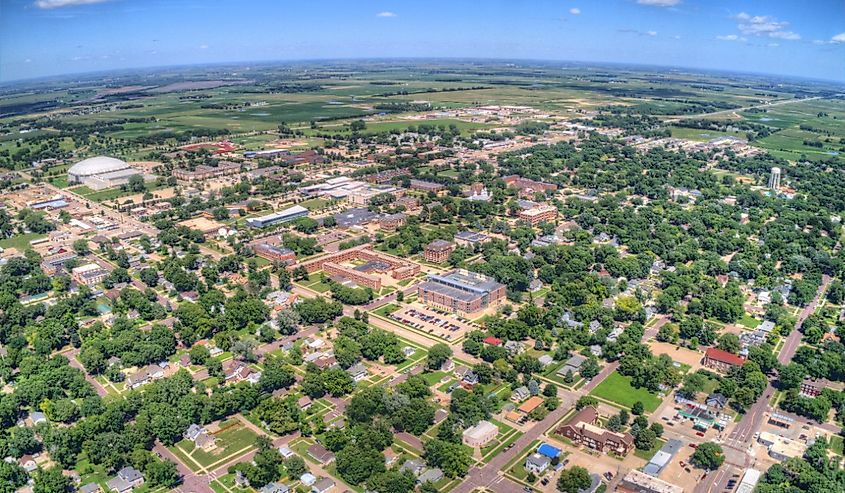
The administrative center of Clay County, Vermilion, is located close to the meeting point of Missouri and Vermillion Rivers, in the state’s southeastern corner. Home to the principal campus of the University of South Dakota, visitors to this beautiful college town get to see over 15,000 American, European, and non-Western instruments at the National Music Museum located on the university campus. Besides this, visitors can learn more about the city’s fascinating history at the W. H. Over Museum and Austin-Whittemore House and admire the five murals in the city’s downtown business district. Outdoor lovers can enjoy kayaking on the Missouri River, hiking to the top of the Spirit Mound Historic Prairie, golfing at the Bluffs Golf Course, camping at the nearby Clay County Park, and splashing down at the Prentis Plunge Aquatic Center. Cultural events like the South Dakota Shakespeare Festival also attract thousands of tourists to Vermillion annually.
Lead
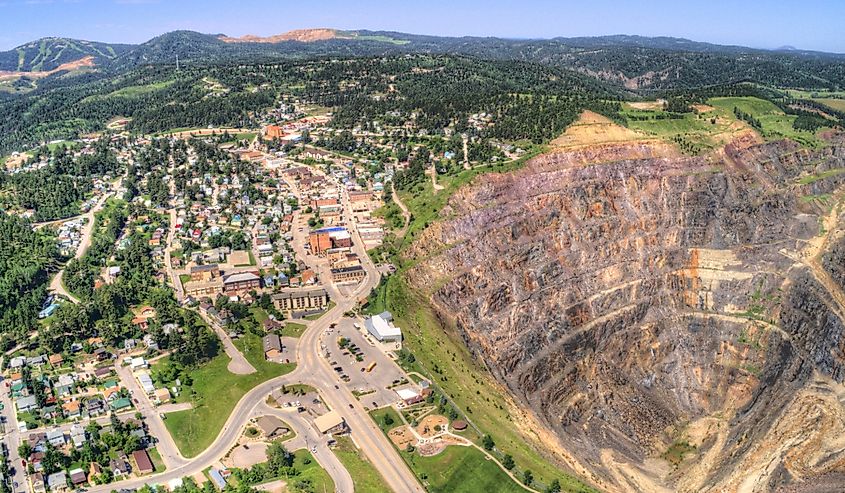
Situated in Northern Black Hills at the state’s western portion, this quaint small mountain town is placed at an elevation of 5,280 ft about 40 miles northwest of Rapid City. Initially a mining town, Lead housed the Homestake Mine, which was the Western Hemisphere’s largest, deepest, and most productive gold mine. A significant portion of the town is part of the Lead Historic District, which occupies 580 acres and includes over 400 buildings. Tourists can explore the Sanford Lab Homestake Visitor Center, the George S. Mickelson Trail, the Historic Homestake Opera House & Recreation Building, and the Black Hills Mining Museum, where visitors can look at various authentic artifacts that showcase the life and equipment of several miners who came to the Black Hills in search of gold.
Surrounded by the Black Hills National Forest, Lead offers several outdoor recreational activities such as hiking, horseback riding, and mountain biking. The nearby Sheridan Lake provides fishing and swimming opportunities, while Spearfish Canyon offers many spaces for rock climbing. Tourists can visit the two full-service ski areas a few miles outside Lead for snowmobiling, skiing, snowboarding, and other winter activities.
Sturgis
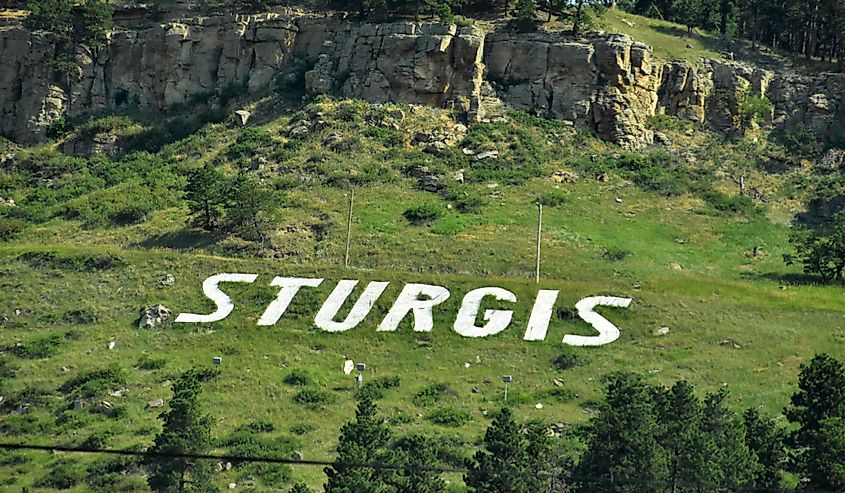
Named in honor of the Civil War Union General Samuel Davis Sturgis, this county seat of Meade County is situated along Bear Butte Creek at the Black Hills National Forest’s northeastern edge, about 25 miles northwest of Rapid City. Sturgis’s charming downtown area has various historic buildings, eclectic shops, and delicious eateries. Tourists can visit the Sturgis Motorcycle Museum & Hall of Fame, Fort Meade Recreation Area, Poker Alice House, and Bear Butte State Park or experience the turns of the Spearfish Canyon Scenic Byway, Iron Mountain Road, and Needles Highway. The town attracts thousands of motorcycle enthusiasts from around the globe for the Sturgis Motorcycle Rally, which is considered one of the world’s biggest annual motorcycle events.
Hot Springs
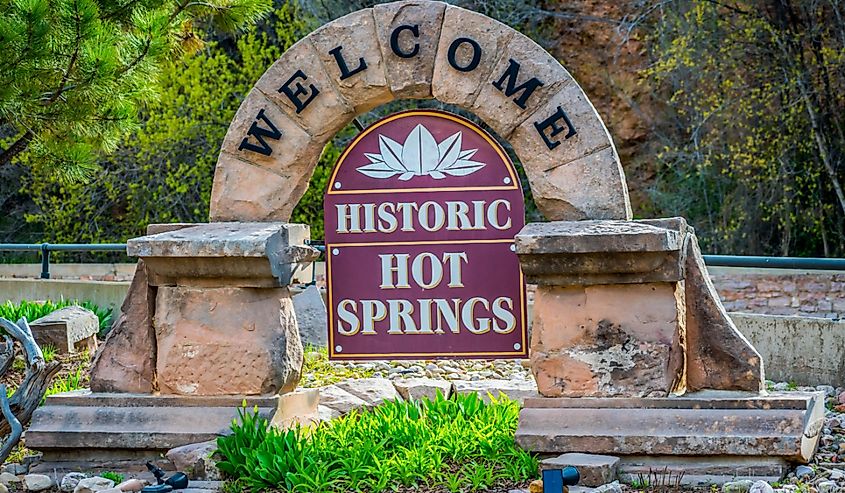
Initially named “Minnekahta” after its Lakota name by the European settlers, this charming small town is located in the state’s Fall River County at the southern edge of Black Hills, along the Fall River in a sandstone canyon encircled by red rocks. Residents and tourists alike are drawn to the area’s warm mineral springs that are reputed to have healing properties. Constructed in 1890, a natural warm water indoor pool named Evans Plunge Mineral Springs remains a popular tourist attraction. Visitors can also explore the Pioneer Museum, the nearby Mammoth Site, Angostura Reservoir, Cold Brook Dam and Lake, Cottonwood Springs Dam and Lake, Black Hills National Forest, Buffalo Gap National Grassland, and the Black Hills Wild Horse Sanctuary.
Custer
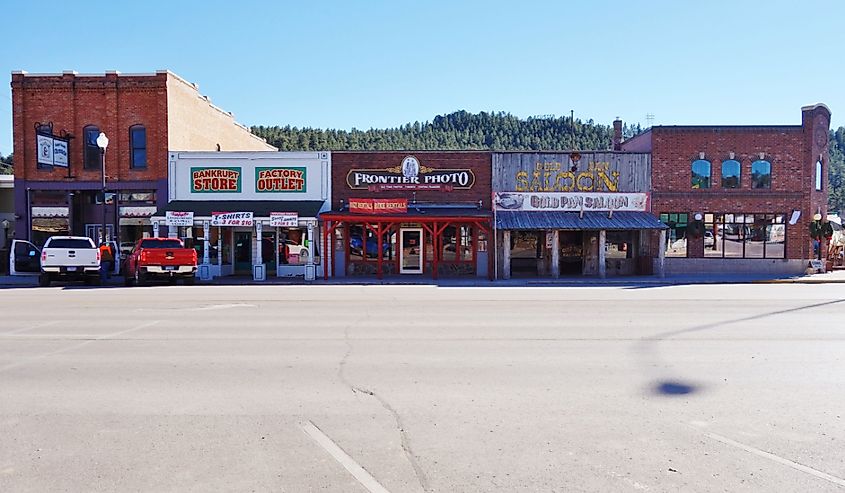
The county seat of Custer County, Custer is the oldest town in the Black Hills, established in 1875 by European Americans. Housing a small populace of 1,919 inhabitants, the town serves as an ideal base for any South Dakota vacation, as it is conveniently located close to some popular tourist attractions, including Jewel Cave National Monument, Custer State Park, Wind Cave National Park, Mount Rushmore National Memorial, and Crazy Horse Memorial. Custer’s Main Street features numerous award-winning restaurants, renowned burgers, tasty gastropubs, and local brews like Black Hills Burger & Bun, Rushmore Brewing, The Canteen at Custer Beacon, and Custer Wolf. Annual events, such as the Gold Discovery Days celebration and festivities, attract a steady stream of visitors to Custer every year.
Hill City
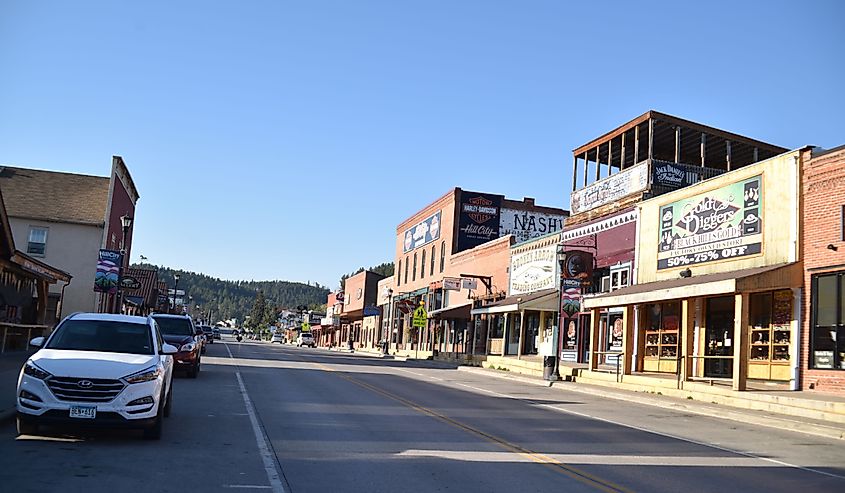
The oldest existing city in the state’s Pennington County, Hill City, has earned the distinction of the “Heart of the Hills” due to its location close to the geographic center of the Black Hills as well as local tourist destinations. A short drive from the city provides visitors magnificent views of the Black Elk Peak, Cathedral Spires, Mount Rushmore, Crazy Horse Memorial, Mickelson Trail, and Custer State Park. Tourists must also check out Hill City’s thriving visual arts community featuring several art studios, galleries, and annual art events like the Art Extravaganza, Arts and Crafts Fair, and Native American quilt show. In addition, the city also houses the Black Hills Museum of Natural History, Wade’s Gold Mill and Mining Museum, the 1880 Train/Black Hills Central Railroad, the South Dakota Railroad Museum, and the CCC Museum of South Dakota. After a day of recreation, the visitors can unwind at some of the city’s finest restaurants, wineries, and pubs on Main Street.
Spearfish
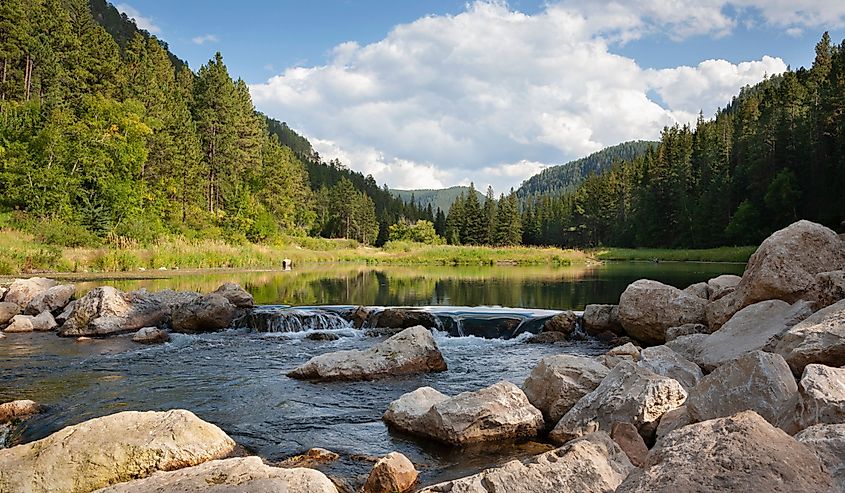
Nicknamed “Queen City,” Spearfish is a small city situated in Northern Black Hills, at the mouth of the breathtaking Spearfish Canyon, about 45 miles northwest of Rapid City. Home to 12,193 inhabitants, the city’s colorful downtown area features retail stores, restaurants, and galleries housed in historic buildings. The Matthews Opera House & Arts Center is the hub of Spearfish’s cultural atmosphere offering live theatrical and musical performances and art events throughout the year. The 22-mile-long Spearfish Canyon Scenic Byway provides visitors with stunning views of lush forests, waterfalls, and tall limestone cliffs in one of the most scenic areas in the Black Hills. Outdoor lovers can explore the nearby Black Hills National Forest and enjoy ample recreational activities like hiking, rock climbing, biking, skiing, fishing, and a refreshing dip in the clear waters of Spearfish Creek. The merrymakers can also participate in the various celebrations hosted by the city, including the Black Hills Corvette Classic, Holidazzle Light Parade, Harvest Fest, and the Downtown Friday Nights music series.
Conclusion
Filled with some of the world’s unique natural attractions, the charming small towns of South Dakota attract travelers to spend quality time away from the chaos of city life. These sparsely populated small towns houses well-known historic sites, locally-owned retail stores, cute eateries which offer tasty cuisines, and plenty of recreation opportunities amidst exquisite natural scenery. So, whether folks participate in the various outdoor recreations or want to reconnect with nature quietly, do not forget to include these small towns in your itineraries when you next visit the Mount Rushmore State.
